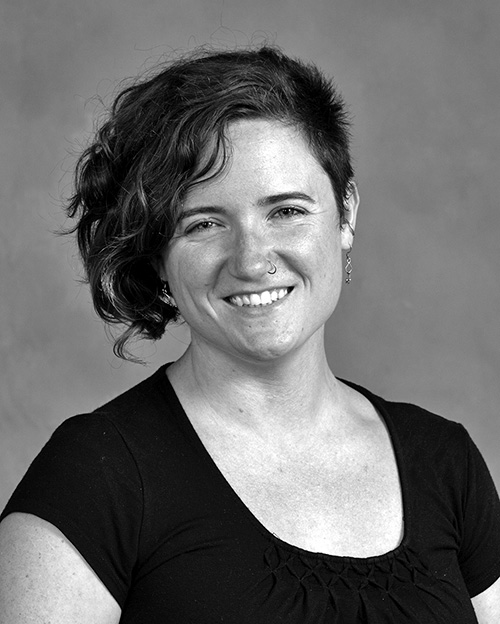|
The Portfolio
Requirement
Printer-Friendly version
First
year students and sophomores majoring or
concentrating in English are required by the department to begin an
English
Studies Portfolio. A completed portfolio must be presented to the department for final
review during English 400, the Senior Seminar;
a
copy of the Seminar paper will be added to the portfolio
upon completion of the course. In addition to the Senior Seminar paper, this portfolio is a requirement for graduation
with an English major or concentration.
Faculty
advisors in the English Department will discuss your portfolio with you
throughout your career at Monmouth College, particularly during
Mentoring Week and before you register for your classes. Please ask them
about the portfolios if you have any questions that are not covered here.
What is an English
Studies Portfolio?
A portfolio is a collection of
documents relating to your work and educational experiences during your
college career and especially to your experiences as an English major.
It also includes your reflection on your
process and your work. One theory is that your best work, polished and
perfected, ought to be included in the portfolio. The department's intent
here is not only to reflect your best work but also to show your progress during your
career at Monmouth College. Thus we ask that you include course essays
that have been evaluated by your instructors; since
you have full access to your portfolio at
any time, the essays may be revised at a later date for graduate school and job
applications.
A portfolio serves a number of purposes. First, it helps
you evaluate your disciplinary goals and progress during your time at Monmouth. By looking at earlier work, you can get a sense of your development as a
writer and scholar, evaluate your strengths and weaknesses, and work on those
things that are most important to you. Secondly,
a portfolio will give you the documentation you need when you're applying for jobs, graduate and professional schools, scholarships,
internships or other special programs.
Since it includes such a thorough record of your
undergraduate experience, having
a well-organized portfolio can help you prepare
writing samples, statements of purpose, and other application
elements. Finally, the portfolio can provide useful material for your faculty mentors to
review
when writing your letters of recommendation.
What should go
in my portfolio? (Table of Contents)
Minimally, the English
Studies Portfolio
must contain each of the components listed below, with no single component
counted in multiple categories:
- One basic analytical or
argumentative essay written in a first-year composition course,
English 200, or literature survey
course.
-
A total of seven other class essays: two for the
sophomore year (at least one of them an English essay); three for the junior
year (at least two English and one other); and in the senior year, the
Senior Seminar essay, and a Citizenship, Reflections, or Honors essay.
-
The English research paper or project from English 200 or
an advisor-approved substitute.
-
Poetry, short stories, drama you
have written in conjunction with class work, especially if you have published the work on campus or elsewhere.
Course
descriptions, summaries, and other documents relating to experiences you have had and work you have done on
off-campus programs; internships; and campus newspapers, magazines,
newsletters.
-
Copies
of LSAT, GRE, Illinois Certification or other test scores related to your
work in English Studies.
-
Annual self-evaluative education-in-progress
reports.
What
Is An Education-In-Progress Report?
Majors will be asked to write annual education-in-progress
reports which will usually be reviewed during the spring registration period. Typically these reports will include:
-
Your goals in English Studies
-
Your incremental progress toward achievement of those
goals
-
The challenges that face you in English Studies
-
Your perception of your strengths and weaknesses in
the areas of reading, writing, and speaking
-
Your resolutions and means of improvement
In addition to this general self-examination, we also ask
that you reflect on particular goals of the English Studies program by
examining departmental objectives during each of your years at Monmouth
College.
-
In your first education-in-progress report,
if you are already an English major in your first year at Monmouth
College, analyze your writing skills and abilities and any development
in English 110 and English 200. Focus on rhetorical strategies, process
writing, and thesis statements. Also analyze your ability to understand
figurative language such as simile, metaphor, etc.
-
As
a sophomore, please emphasize writing skills, including process
writing strategies and thesis statements. Explain any development of
your library resource skills. Additionally, make clear what you know
about the special uses of language in literature including figurative
language and literary structures. Finally describe your overall ability
to read, explicate, analyze and interpret works of literature.
-
During your junior year, tell us about your understanding of the
special uses of language in literature with an emphasis on figurative
language and literary structures. Also, how has your ability to
understand and appreciate the cultural and historical contexts for the
study of English and American literature improved? Finally, have you
developed a basic knowledge of the history of the English language
including traditional grammar and modern grammar theories? This will
apply more directly to students who have taken English 314 (History of
the English Language) and English 201 (Grammar).
-
Your Senior Seminar professor
will request that you review your
portfolio, assessing your progress toward your degree in English
Studies. At this time, include a discussion of your ability to
recognize and appreciate literary genre and sub-genre distinctions,
literary movements, critical approaches to texts, and diverse cultural
and historical literary traditions. Do you understand the cultural and
historical contexts for English and American literatures?
Finally,
please comment on your ability to read, explicate, analyze and interpret
works of literature. Remember that this is an assessment of your
academic progress, not just of this academic year.
Your advisor will read and orally respond to your report, and
you will then be asked to summarize your advisor's response and your own
reaction to that response in a paragraph appended to the in-progress report. The department expects self-evaluations conducted early in your college career
to be projective, looking ahead to academic and internship goals; likewise, we
expect self-evaluations conducted during your senior year to be reflective,
looking back at the experience and knowledge you've gained. Your advisor may
not release your registration if you have not completed your
education-in-progress report and updated your portfolio.
For
examples of effective education-in-progress reports, please
click HERE
Portfolio
Procedures
- Your English
Studies Portfolio begins in discussion with an English department adviser. At that time you will need to save all your
graded essays for your portfolio and your progress
reports (EIPs).
-
The
department will provide a black, one-inch three-ringed binder with inside pockets and
a label for your name and
anticipated year of graduation (on front cover and binder edge. This
binder will become the
departmental copy of your portfolio. See the
"Table
of Contents"
that represents the minimum requirements of the portfolio, as listed above. Save and keep an electronic copy of the table and print it for your hard
copy portfolio binder. You may use
that "Table
of Contents"
or elaborate one of your own based upon the model provided. That
"Table
of Contents"
may be revised regularly but should be reviewed carefully once a year and again
before turning in the portfolio in the spring of your senior year.
- A three ring punch will be left atop the file cabinet in
the department office. Students are required to update their hard copy
binders at least once a
semester (typically at the end of the Fall Semester and during the registration
period in the spring).
- Class
papers included in the portfolio notebook should be the
marked, graded copies of assignments. It
is imperative that you include essays as soon as possible after receiving them
back from your professors. You may keep originals as long as copies of graded essays are included in your
portfolio.
-
Though they
become the property of the English Department,
contents of your portfolio notebook will never be
released or shared with anyone without your explicit permission.
-
By the fourth week of
the Senior Seminar, you will submit your updated and completed English Studies
Portfolio to your
advisor who will review the
portfolio for completeness and give you oral feedback on
the portfolio. After you've made any necessary
changes, you will then present it to your seminar
instructor who will review and mark it S/U, normally prior to consideration of your seminar essay. With an S
you become eligible for completion of English 400, graduation with a major or
concentration, and departmental Honors.
-
After
you have completed your senior thesis, you will write a
brief, one-page self-evaluation of the essay and include
it as an appendix to your portfolio.
-
The department retains your portfolio notebook (you will have
established an electronic portfolio of your own), though you may have access
to the hard copy version for resumes, job applications, and graduate school
applications.
|
 |
|
What's New |
|
The Department of English
is pleased to welcome Professor Kasia
Bartoszynska, who is teaching 19th century
literature and British Literature II!

|
|
|
Publications |
|
|
|

